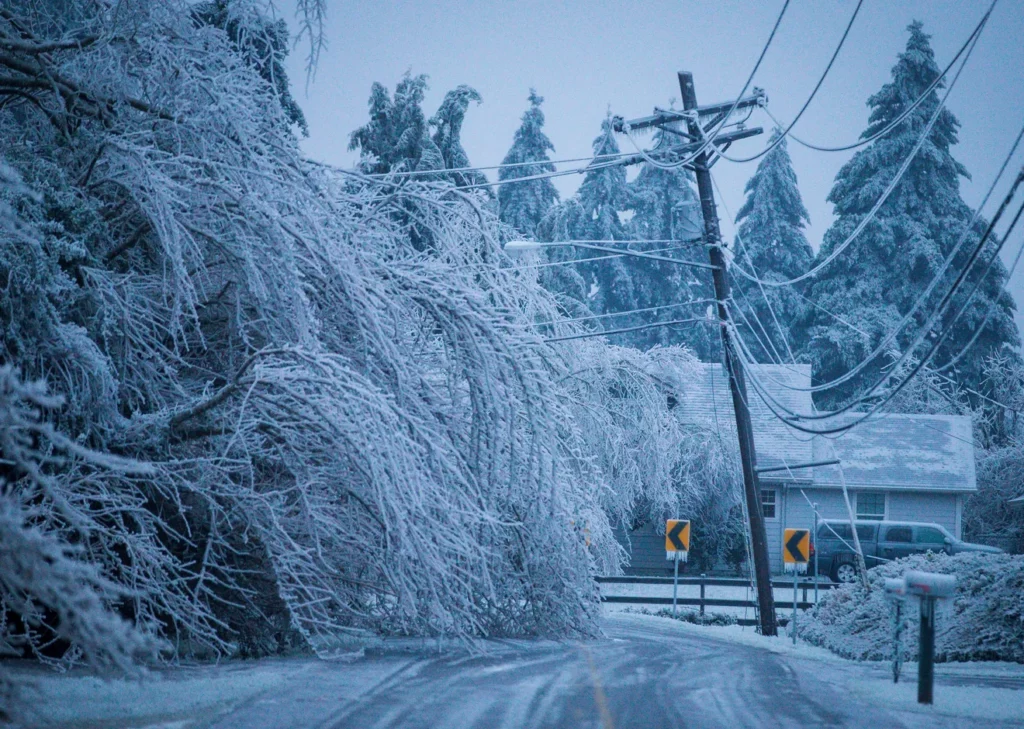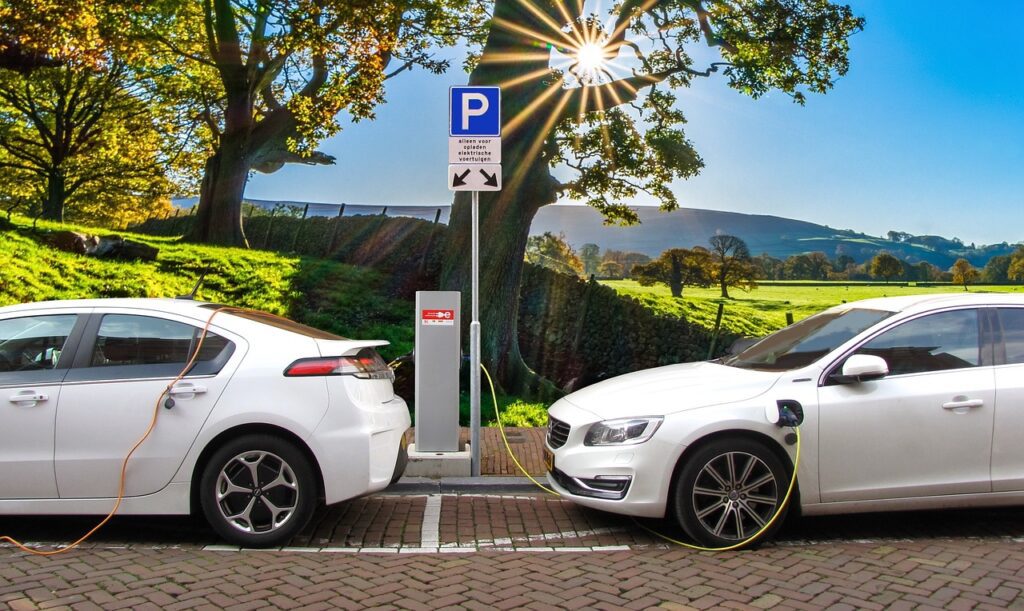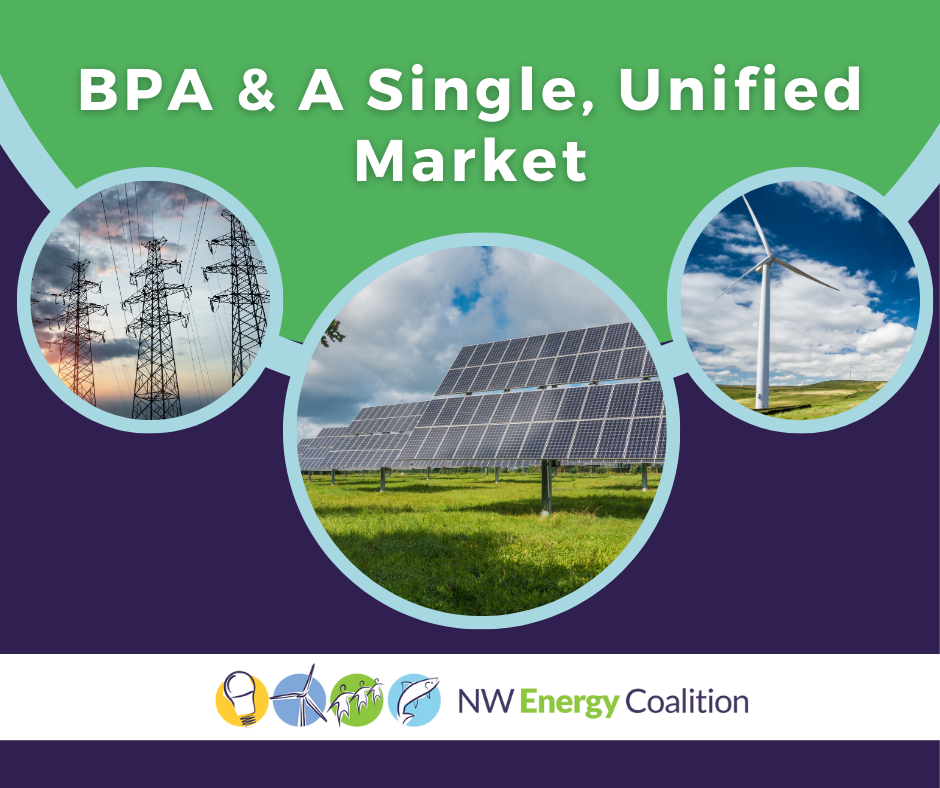Topics
The path for gas utility decarbonization in Washington state
The transition from gas to electricity is well underway in Washington state in response to both climate change and bold state policies designed to address it. State climate policies set progressive targets, like the Clean Energy Transformation Act requiring 80% of electric utilities’ resources to be clean (renewable or non-emitting) by 2030 and 100% clean…
Read MorePathways Initiative addresses the key challenge to a West-wide electricity market
This blog post discusses the latest developments in creating a single, unified West-wide market – essential for keeping rates affordable, improving reliability, and meeting our clean energy and decarbonization goals. For an introduction to energy markets, we highly recommend checking out our Markets Month series (Part 1, Part 2, and Part 3). Pathways Initiative addresses…
Read MoreAgreement sets a path to recover salmon and develop new Tribally led clean energy
On December 14, 2023, a historic agreement was announced by the White House, four Columbia Basin Tribal Nations (Nez Perce, Yakama, Warm Springs, and Umatilla Tribes) and the states of Oregon and Washington, to protect endangered salmon and steelhead on the Columbia River Basin and honor Tribal treaty rights. An important component of the agreement centers…
Read More2024 Washington Legislative Session Wrap Up
This year’s “short” legislative session ended on March 7th. Despite the abbreviated timeline, a flurry of bills created a busy year for advocates and legislators in Olympia. This year, the Coalition focused its advocacy on decarbonizing the energy sector, implementing the new Transportation Electrification Strategy, and solar consumer protections. Here’s a snapshot of some wins in…
Read MoreCustomer-side resources will be critical as rising electricity demand, extreme weather and climate change impact the Northwest power system
In January 2024, extreme cold descended on the Northwest, causing a significant spike in electricity demand. At the same time, there were serious challenges for energy supplies across the region. But first and foremost, we want to acknowledge those personally affected by the severe weather and send a heartfelt thank you to all the utility…
Read MoreWashington’s Transportation Electrification Strategy tackles the state’s largest source of emissions
Transportation is the largest source of greenhouse gas emissions in the country. This includes Washington, where transportation makes up around 40 percent of the state’s greenhouse gas (GHG) emissions. For the region to achieve its ambitious climate goals, it’s crucial to develop well-planned pathways to decarbonize all sectors of our economy, especially the biggest piece…
Read MoreThe value of centering energy assistance programs on energy burden
As colder weather seeps across the Northwest, most people are switching on heating systems to stay comfortable. Some may not think twice about the impact cranking up the heat has on their energy bill. But for energy burdened households — those who spend 6% or more of their income on energy costs — high energy…
Read MoreExtreme weather events strengthen the case for customer-side resources, particularly managing load
Extreme weather events have become the new norm around the world. In the typically wet Northwest, prolonged periods of drought can put pressure on the region’s hydropower system, cause heat stress and wildfire risks. In this blog post, we connect the dots between increasingly volatile weather conditions and the value of customer-side energy resources. These…
Read MorePublic Comment through 10/30 on Washington’s Transportation Electrification Strategy!
The public comment period opens today on the Washington EV Council’s draft Transportation Electrification Strategy (TES). The TES will serve as a roadmap to support widespread adoption of electric vehicles across Washington. This is one of the largest transportation transitions ever implemented in Washington, so the TES includes strategies for infrastructure, community access and affordability,…
Read MoreA Single, Unified Western Market
Bonneville Power Administration has a key role The West is in the midst of determining how to structure itself into electricity markets, with significant implications for utilities, customers, and the future of a clean, equitable, and affordable western grid. Electricity markets can coordinate and optimize the electricity grid, creating a system that is more reliable,…
Read More










